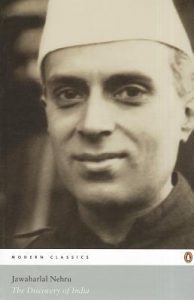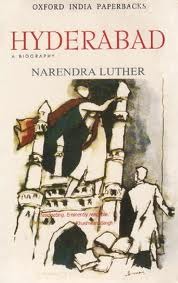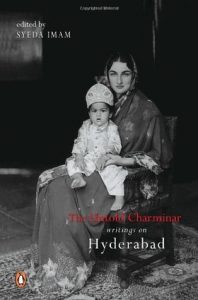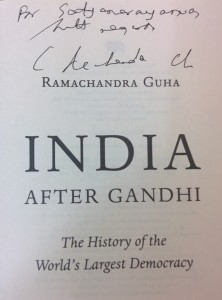My discovery of India
Nehru writes:
It seemed monstrous to me that a great country like India, with a rich and immemorial past, should be bound hand and foot to a far-away island which imposed its will upon her. It was still more monstrous that this forcible union had resulted in poverty and degradation beyond measure.
Rabindranath Tagore writes:
To know and understand India one has to travel far in time and space, to forget for a while her present condition with all its misery and narrowness and horror, and to have glimpses of what she was and what she did. To know my country, one has to travel to that age, when she realized her soul and thus transcended her physical boundaries, when she revealed her being in a radiant magnanimity which illumined the eastern horizon, making her recognized as their own by those in alien shores who were awakened into a surprise of life; and not now when she has withdrawn herself into a narrow barrier of obscurity, into a miserly pride of exclusiveness, into a poverty of mind that dumbly revolves around itself in an unmeaning repetition of a past that has lost its light and has no message for the pilgrims of the future.’
To my mind, India has seen and enjoyed the flowering of the world’s great traditions of philosophy, science, and art, and almost all its major religions. In other words, India is a home to all the world religions. She is a mosaic of diverse cultures, customs, creed, cuisine, color, costume, and language — and yet united, united by diversity. India had always been religious tolerant and embraced everyone including the Muslim and English invaders with courtesy and hospitality, which is a distinctive and a rare quality of accepting people from different grounds. The then people of India intermingled, inter-dined in gusto with all sects. India has enjoyed the international renown for educational universities such as Nalanda, Taxila, when Oxford and Cambridge were not even in the gleams of the founders’ eyes. These universities employed 2000 teachers and housed about 10,000 students with a library of a colossus status. There is something drone-like about the cliches about India; She has enjoyed, for long, until the beginning of 18th century, the title of world’s richest country. India is a geographical and economic entity, a cultural unity amidst diversity, a bundle of contradictions held together by strong but invisible threads. If India is such a rich and strong nation, how is it that then India became a concubine to British, to whom our forebears didn’t give much importance and snubbed it? It seems that the British succeeded in dominating India by a succession of fortuitous circumstances and lucky flukes. With remarkably little effort, considering the glittering prize, they won a great empire and enormous wealth, which helped to make them the leading power in the world. In other words, the fissiparous tendencies and sycophancy internally (this repeated in 1962 war between India & China, where India lost to China because of sycophancy in the govt.) made the British to appropriate the throne hands down. Today, one could easily say that London that is so vibrant was constructed from the money plundered and appropriated from the sweat of India’s brow.
Despite a plethora of invasions, overwhelmed again and again, her spirit was never conquered, and she remains unsubdued. About her there is the elusive quality of a legend of long ago; some enchantment seems to have held her mind. In Nehru’s words, “She is a myth and an idea, a dream and a vision, and yet very real and present and pervasive. There are terrifying glimpses of dark corridors which seem to lead back to the primeval night, but also there is the fullness and warmth of the day about her. Shameful and repellent she is occasionally, perverse and obstinate, sometimes even a little hysteric, this lady with a past. But she is very lovable, and none of her children can forget her wherever they go or whatever strange fate befalls them. For she is part of them in her greatness as well as her failings, and they are mirrored in those deep eyes of hers that have seen so much of life’s passion and joy and folly, and looked down into wisdom’s well. Each one of them is drawn to her, though perhaps each has a different reason for that attraction or can point to no reason at all, and each sees some different aspect of her many-sided personality.”
As the independent (not totally sure of this, though) India turns 71 today, unfortunately, I am more than convinced that democracy in India is only top-dressing; under its veneer lies bigotry, cynicism, cant, mediocre! However, I say with conviction that India will recover to its past glory, for she has seen such numerous instances in the past and is resilient and her spirit remains unsubdued!
 As long as Lions do not have story-tellers, the history of the hunt always glorifies the hunter. This adage is very much germane to India and its history, for it lacks historians of Indian origin in the pre-Nehru era, and much of India’s history is written by the foreigners, who visited India, with contempt and jaundiced opinions. The account of Indian history by outsiders is inveighed against Indians by marginalizing, and quoting as parochial in thought and incestually looking country. Unfortunately, this behavior is also observed in most of today’s Indians who talk glibly of modernism and modern spirit and the essence of Western culture and are at the same time ignorant of their own culture. Today most Indians take the external forms and outer trapping of the West, and imagine that they are in the vanguard of an advancing civilization. Naive and shallow and yet full of their conceits, they live an artificial life which has no living contact with the culture of the East or of the West.
As long as Lions do not have story-tellers, the history of the hunt always glorifies the hunter. This adage is very much germane to India and its history, for it lacks historians of Indian origin in the pre-Nehru era, and much of India’s history is written by the foreigners, who visited India, with contempt and jaundiced opinions. The account of Indian history by outsiders is inveighed against Indians by marginalizing, and quoting as parochial in thought and incestually looking country. Unfortunately, this behavior is also observed in most of today’s Indians who talk glibly of modernism and modern spirit and the essence of Western culture and are at the same time ignorant of their own culture. Today most Indians take the external forms and outer trapping of the West, and imagine that they are in the vanguard of an advancing civilization. Naive and shallow and yet full of their conceits, they live an artificial life which has no living contact with the culture of the East or of the West. If a city’s raison d’etre is to make life better — Hyderabad is one of its kind. Hyderabad sits nestled amongst one of the oldest rock systems of the world. Hyderabad is the daughter of Golconda Fort which was built during Kakatiya rule — after the fall of the Kakatiya dynasty and a series of events Golconda Fort fell into the hands of Persians — Qutb Shahi dynasty. When Golconda Fort became congested with people teeming and hygiene could not be maintained, Quli passed a decree ordering the establishment of a new city which should be a replica of heaven on earth and unequalled in the world. Then, on an auspicious day when the moon was in the constellation of Leo and Jupiter was in its own mansion, a city is born — Hyderabad. Since then Hyderabad has attracted people from all over the world for a variety of reasons. Its climate, its cosmopolitanism, its growth — Hyderabad a biography is living relic of the city, starting with the period prior to the city’s birth in 1591, the book presents an unbroken and colourful chronicle of Hyderabad, one of contemporary India’s most important cities. Charting the city’s fascinating march from Bhagnagar to Hyderabad to Cyberabad, this story is replete with diverse engaging, eccentric and often daring characters, some of whose lives are stranger than fiction!
If a city’s raison d’etre is to make life better — Hyderabad is one of its kind. Hyderabad sits nestled amongst one of the oldest rock systems of the world. Hyderabad is the daughter of Golconda Fort which was built during Kakatiya rule — after the fall of the Kakatiya dynasty and a series of events Golconda Fort fell into the hands of Persians — Qutb Shahi dynasty. When Golconda Fort became congested with people teeming and hygiene could not be maintained, Quli passed a decree ordering the establishment of a new city which should be a replica of heaven on earth and unequalled in the world. Then, on an auspicious day when the moon was in the constellation of Leo and Jupiter was in its own mansion, a city is born — Hyderabad. Since then Hyderabad has attracted people from all over the world for a variety of reasons. Its climate, its cosmopolitanism, its growth — Hyderabad a biography is living relic of the city, starting with the period prior to the city’s birth in 1591, the book presents an unbroken and colourful chronicle of Hyderabad, one of contemporary India’s most important cities. Charting the city’s fascinating march from Bhagnagar to Hyderabad to Cyberabad, this story is replete with diverse engaging, eccentric and often daring characters, some of whose lives are stranger than fiction! Whenever and wherever I mention that I live in Hyderabad, I am subjected to a pyroclastic flow of Hyderabad’s glorious past gushing out with a sense of pride — my tone shrieks with exclamation marks when I have to say Hyderabad!! Hyderabad founded by Quli Qutb Shah with a city plan ready in 1591, incorporating many of the features of the mythical Islamic heaven, now abounds in recurrent images, phrases — and stories that are less myth more truth, than most. There is something drone-like about the cliches; the state long presided over by the world’s richest man, home to the Salar Jung Museum, the Charminar, the Golconda diamonds, and the most likely to the Kohinoor, the Orloff, the Jacob, the Hope, the Great Mughal, the Darya-i-Noor. Hyderabad is a distinct Deccani culture, the product of a very particular mixture of peoples and influences. It was based on religious tolerance, courtesy, hospitality, love of arts and a first-rate civil service which made no distinction between creeds or caste or class. Religious tolerance —that rare value of accepting different cultures readily — has been an integral part of the culture of the Deccan for good reason. This hair-raising book, the untold Charminar’, Syeda Iman is a gleaning of many who touched the city and were moved; who know and will tell; who relish and wish to share that relish. Finally, although the Hyderabad that I reckon — the city of pearls, the city of lakes, the city of gardens has died, Hyderabad lives on!!
Whenever and wherever I mention that I live in Hyderabad, I am subjected to a pyroclastic flow of Hyderabad’s glorious past gushing out with a sense of pride — my tone shrieks with exclamation marks when I have to say Hyderabad!! Hyderabad founded by Quli Qutb Shah with a city plan ready in 1591, incorporating many of the features of the mythical Islamic heaven, now abounds in recurrent images, phrases — and stories that are less myth more truth, than most. There is something drone-like about the cliches; the state long presided over by the world’s richest man, home to the Salar Jung Museum, the Charminar, the Golconda diamonds, and the most likely to the Kohinoor, the Orloff, the Jacob, the Hope, the Great Mughal, the Darya-i-Noor. Hyderabad is a distinct Deccani culture, the product of a very particular mixture of peoples and influences. It was based on religious tolerance, courtesy, hospitality, love of arts and a first-rate civil service which made no distinction between creeds or caste or class. Religious tolerance —that rare value of accepting different cultures readily — has been an integral part of the culture of the Deccan for good reason. This hair-raising book, the untold Charminar’, Syeda Iman is a gleaning of many who touched the city and were moved; who know and will tell; who relish and wish to share that relish. Finally, although the Hyderabad that I reckon — the city of pearls, the city of lakes, the city of gardens has died, Hyderabad lives on!!